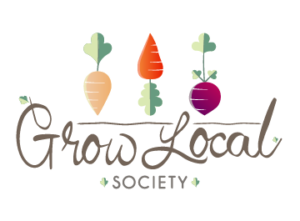 Crisp Organics has always strived to help diversify crops, protect waterways and improve air quality for Lower Mainland residents and farmers.
Crisp Organics has always strived to help diversify crops, protect waterways and improve air quality for Lower Mainland residents and farmers.
“We really began farming for environmental and conservation reasons and have been working hard to transform our land into a vibrant farm with an intense focus on sustainability. We also get to work together as a family.”
Over a two year period, Andrew Vogler and his family searched from Pemberton to Hope for the perfect plot of land to farm. Partnering with his mother, Andrew says they purchased 11 acres in Abbotsford, close to home, about nine years ago.
“My mother grew up on a dairy farm and we were always growing stuff and so I have always wanted to get involved myself. Sustainability has always been apart of our lives and we wanted to see more diversity in crops.”
 Andrew says his family knew the area had the perfect soil for farming and lots of vegetables were being grown already.
Andrew says his family knew the area had the perfect soil for farming and lots of vegetables were being grown already.
“The soil, a sandy loam, is the result of thousands of years of sedimentation onto the old Sumas Lake bottom, which once covered much of the lowlands between Abbotsford and Chilliwack. Sumas Lake was drained in the early part of the 20th century to open land to agriculture and the area is now one of the most productive agricultural regions in Canada.”
Crisp has created two seasonal harvest boxes, Summer and Cool Season, which are dropped off in about 20 neighbourhoods. Andrew says his family wants people to get a sense of what local produce is available so they can create healthier and more creative meals.
“We deliver the boxes every week and each one has around seven difference types of produce. We created it for people who want to try something new and more sustainable and who may not be able to always make it to a market.”
 Crisp Organics has a three to five week growing period, cycling through about 40 different crops, therefore their harvest boxes vary from week to week, adding to the excitement around what customers will receive.
Crisp Organics has a three to five week growing period, cycling through about 40 different crops, therefore their harvest boxes vary from week to week, adding to the excitement around what customers will receive.
“We let them know ahead of time about what will be in the harvest box so they can plan their meals in advance. We find that people will try it out, see what they like and then maybe go to market to find our products. Everyone’s lives are so different and this program allows people to experience local food.”
To ensure crops are grown, maintained and harvested to their standards, Andrew says his family works closely with staff.
“Care is the most important thing. Care more than anything both in which products to harvest and what to leave to continue to grow. Care in keeping it cooler and damp before you get to market is also important.”
Be sure to stop by Crisp Organics at market to see what they will have!
